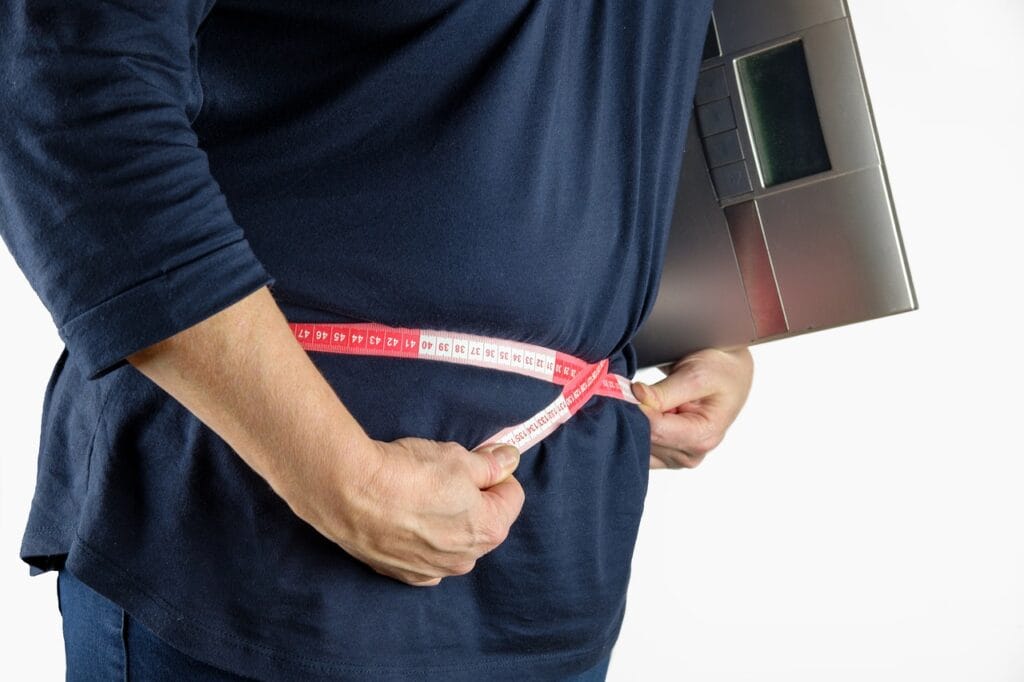Losing weight is a journey that many people on, and one of the most popular approaches is the calorie deficit. You may have heard that consuming fewer calories than your body burns will lead to weight loss, and this principle is true for the most part. But what happens when you follow the calorie deficit plan, and yet, the scale refuses to budge?
If you’re wondering, “Why am I not losing weight on a calorie deficit?” or frustrated because you’re “on a calorie deficit and not losing weight,” you are not alone. Many people face this exact problem. In this article, we’ll break down the reasons for not losing weight on a calorie deficit and help you understand what might be happening in your body.
1. You May Be Miscalculating Your Calorie Intake
One of the most common reasons people don’t lose weight on a calorie deficit is miscalculating their calorie intake. This happens more often than you think! It’s easy to underestimate how many calories you’re consuming daily. Even if you think you are tracking everything accurately, small snacks, condiments, and hidden calories in drinks can add up quickly.
Tips to Fix This:
- Track everything: Use a reliable calorie tracking app and log every single thing you eat, even a tiny piece of candy.
- Be mindful of serving sizes: Many people guess portion sizes, but it’s best to measure your food with a scale or measuring cups to ensure accuracy.
- Don’t forget beverages: Coffee, tea with sugar, smoothies, and juices all contain calories. Don’t overlook them.
2. Overestimating Calorie Burn from Exercise
Exercise is excellent for health and can support your weight loss efforts, but it’s common to overestimate how many calories you burn during workouts. Just because you went for a jog or had a workout session doesn’t mean you burned a huge number of calories. Often, people end up eating more calories than they burn, especially if they reward themselves with food post-workout.
What to Do:
- Use conservative estimates: When calculating your calories burned, use conservative numbers to avoid overestimation.
- Avoid compensatory eating: Don’t eat more just because you exercised. Stick to your planned calorie intake.
- Focus on overall activity: Include daily activities such as walking, cleaning, and taking the stairs in your activity level, but don’t rely on them to make a huge difference in your calorie deficit.
3. Water Retention and Bloating
Sometimes, even when you are doing everything right, the number on the scale doesn’t move because your body is retaining water. Water retention can happen for many reasons, such as consuming too much sodium, stress, hormonal changes, or certain medications. This can give you the feeling that you are not losing weight, but in reality, it’s just temporary.
What to Do:
- Reduce salt intake: Too much sodium can cause water retention. Aim to lower your sodium intake by avoiding processed foods and adding less salt to your meals.
- Drink more water: Drinking more water can help reduce water retention. Aim for 8–10 glasses of water per day.
- Be patient: If you’re bloated or retaining water, don’t panic. Keep following your calorie deficit plan, and the water weight will eventually go away.
4. Plateaus Are Normal
It’s frustrating when you are on a calorie deficit and not losing weight, but plateaus are a natural part of the weight loss process. After losing some weight, your body adapts to the lower calorie intake, and your weight loss might slow down or stop altogether.
How to Break a Plateau:
- Change up your routine: Try different types of workouts or increase the intensity to challenge your body.
- Reassess your calorie needs: As you lose weight, your body needs fewer calories to function. Make sure to adjust your calorie deficit accordingly.
- Increase non-exercise activity: Small activities like walking more or fidgeting can help burn additional calories without requiring a significant time investment.
5. You’re Not Getting Enough Protein
Protein is an essential nutrient for weight loss. It helps to keep you feeling full, supports muscle mass, and boosts your metabolism. If you’re not consuming enough protein, you may not feel satisfied with your meals, which can lead to overeating or snacking more often.
How to Increase Protein:
- Include protein in every meal: Make sure every meal includes a source of lean protein, such as chicken, fish, eggs, or plant-based options like tofu or beans.
- Choose high-protein snacks: Opt for snacks like Greek yogurt, cottage cheese, or protein bars to boost your protein intake throughout the day.
6. Stress and Lack of Sleep
Both stress and poor sleep can negatively affect your ability to lose weight, even if you are on a calorie deficit. When you are stressed, your body produces cortisol, a hormone that can lead to increased fat storage, especially around your midsection. Similarly, not getting enough sleep can disrupt your hunger hormones, making you feel hungrier and more likely to overeat.
What to Do:
- Manage stress: Incorporate stress-relief techniques like meditation, deep breathing exercises, or yoga into your daily routine.
- Prioritize sleep: Aim for 7–9 hours of quality sleep every night. Establish a relaxing bedtime routine to help you unwind and improve your sleep.
7. You’re Not Strength Training
If you’re only doing cardio and not incorporating strength training, you might be missing out on an opportunity to build lean muscle mass. Muscle burns more calories than fat, even at rest. By not strength training, you may be slowing down your metabolism and making it harder to lose weight.
What to Do:
- Incorporate strength training: Add weight lifting, resistance bands, or bodyweight exercises like squats and push-ups into your routine.
- Focus on progressive overload: Gradually increase the weight or resistance you use to continue challenging your muscles and promoting growth.
8. Hormonal Imbalances
Sometimes, hormonal issues can interfere with weight loss. Conditions like hypothyroidism, polycystic ovary syndrome (PCOS), or insulin resistance can make it harder for you to lose weight, even on a calorie deficit.
What to Do:
- Consult a doctor: If you suspect a hormonal imbalance, talk to your healthcare provider for a proper diagnosis and treatment plan.
- Focus on a balanced diet: Eating a nutrient-dense, balanced diet can support hormone health and help with weight management.
9. You’re Not Consistent Enough
Weight loss requires consistency over time. If you’re sticking to your calorie deficit for five days but going over your calories on the weekends, it might be enough to cancel out the deficit you created during the week. Small slip-ups here and there can add up, preventing you from seeing progress.
How to Stay Consistent:
- Plan your meals: Meal planning can help you stay on track, even during busy days.
- Stay mindful of treats: It’s okay to enjoy treats, but make sure they fit within your calorie budget.
- Avoid “cheat days”: Instead of having an all-out cheat day, consider allowing yourself small indulgences in moderation.
10. The Scale Isn’t the Only Measure of Progress
Sometimes, you might be losing fat but not seeing the number on the scale go down because of other factors like muscle gain, water retention, or changes in body composition. Relying solely on the scale can be discouraging, especially if your body is changing in other ways.
Other Ways to Measure Progress:
- Take measurements: Use a tape measure to track changes in your waist, hips, and other areas.
- Monitor how your clothes fit: Are your clothes fitting better? That’s a sign of progress!
- Take progress photos: Regular photos can show body changes that the scale doesn’t reflect.
11. Your Body Needs Time
Weight loss isn’t always a linear process, and it can take time for your body to adjust to changes. Even if you’re doing everything right, you might not see immediate results. Remember, healthy weight loss happens slowly—about 1-2 pounds per week is a realistic and sustainable goal.
Be Patient:
- Trust the process: Stay consistent with your calorie deficit and exercise, and give your body time to respond.
- Avoid drastic measures: Don’t resort to extreme diets or cutting too many calories, as this can backfire and lead to muscle loss or metabolic damage.
If you’re on a calorie deficit and not losing weight, don’t lose hope! There are many reasons why this might be happening, from miscalculating your intake to hormonal imbalances or simply needing more time. By addressing these factors, making small adjustments, and staying patient, you can overcome the obstacles standing in your way.
Remember, weight loss is not a race—it’s a journey. Stay consistent, be kind to yourself, and celebrate non-scale victories along the way.


